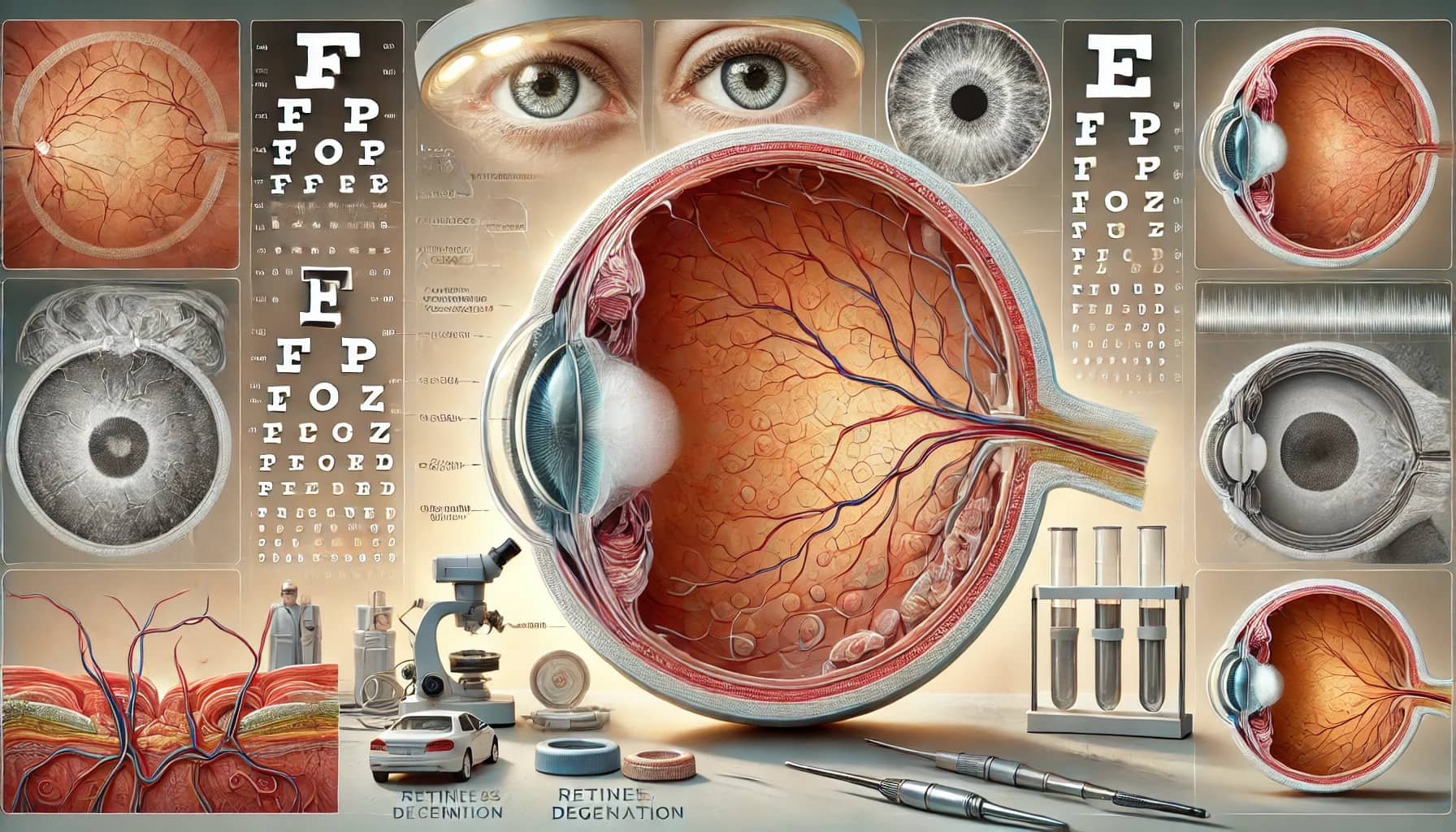
Vitreoretinal degeneration is a complex eye condition affecting the retina and vitreous, leading to vision problems. Ever wondered what causes this condition or how it impacts daily life? You're in the right place. This blog post dives into 30 intriguing facts about vitreoretinal degeneration, shedding light on its symptoms, causes, and treatments. Whether you're a curious reader or someone affected by this condition, these facts will provide valuable insights. From genetic factors to lifestyle influences, we'll cover it all. Ready to learn more? Let's get started on this eye-opening journey!
Key Takeaways:
- Vitreoretinal degeneration affects vision due to aging, genetics, and trauma. Regular eye check-ups, healthy diet, and protective eyewear can help prevent and manage this condition effectively.
- Understanding the types, risk factors, and treatment options for vitreoretinal degeneration is crucial for early detection and effective management. Research into gene therapy and stem cells offers hope for future treatments.
What is Vitreoretinal Degeneration?
Vitreoretinal degeneration affects the eye's vitreous and retina, leading to vision problems. Understanding this condition helps in managing and treating it effectively. Here are some key facts about vitreoretinal degeneration.
-
Vitreous Composition: The vitreous is a gel-like substance filling the eye, composed mainly of water and collagen.
-
Retina's Role: The retina is a light-sensitive layer at the back of the eye, crucial for vision.
-
Degeneration Causes: Aging is a primary cause, but genetics and trauma can also contribute.
-
Symptoms: Common symptoms include floaters, flashes of light, and blurred vision.
Types of Vitreoretinal Degeneration
Different types of vitreoretinal degeneration exist, each with unique characteristics and implications for vision.
-
Lattice Degeneration: Thinning of the peripheral retina, increasing the risk of retinal tears.
-
Retinoschisis: Splitting of the retinal layers, often leading to vision loss.
-
Macular Degeneration: Affects the central part of the retina, causing central vision loss.
-
Vitreous Detachment: The vitreous separates from the retina, sometimes leading to retinal tears.
Risk Factors
Several factors can increase the likelihood of developing vitreoretinal degeneration.
-
Age: Risk increases significantly with age, especially after 50.
-
Family History: Genetics play a role; having a family member with the condition raises risk.
-
Myopia: High levels of nearsightedness can lead to vitreoretinal issues.
-
Eye Injuries: Trauma to the eye can trigger degeneration.
Diagnosis and Detection
Early detection is crucial for managing vitreoretinal degeneration effectively.
-
Eye Exams: Regular comprehensive eye exams help detect early signs.
-
OCT Scans: Optical coherence tomography provides detailed images of the retina.
-
Fluorescein Angiography: This test uses dye to highlight blood vessels in the retina.
-
Ultrasound: Eye ultrasound can detect vitreous and retinal abnormalities.
Treatment Options
Various treatments are available to manage and mitigate the effects of vitreoretinal degeneration.
-
Laser Therapy: Used to seal retinal tears and prevent further damage.
-
Vitrectomy: Surgical removal of the vitreous gel to treat severe cases.
-
Cryotherapy: Freezing treatment to repair retinal tears.
-
Anti-VEGF Injections: Medications injected into the eye to reduce abnormal blood vessel growth.
Preventive Measures
Taking steps to protect eye health can reduce the risk of vitreoretinal degeneration.
-
Regular Eye Check-ups: Essential for early detection and management.
-
Healthy Diet: Consuming foods rich in vitamins A, C, and E supports eye health.
-
Protective Eyewear: Wearing sunglasses and safety glasses can prevent eye injuries.
-
Control Blood Pressure: High blood pressure can damage retinal blood vessels.
Living with Vitreoretinal Degeneration
Managing daily life with vitreoretinal degeneration involves adapting to vision changes.
-
Assistive Devices: Magnifiers and special glasses can help with reading and other tasks.
-
Home Modifications: Improving lighting and reducing hazards can make living spaces safer.
-
Support Groups: Connecting with others facing similar challenges provides emotional support.
-
Regular Monitoring: Keeping track of vision changes and seeking prompt medical advice is crucial.
Research and Future Directions
Ongoing research aims to improve understanding and treatment of vitreoretinal degeneration.
-
Gene Therapy: Exploring genetic treatments to address underlying causes.
-
Stem Cell Research: Investigating the potential of stem cells to regenerate damaged retinal tissue.
Final Thoughts on Vitreoretinal Degeneration
Vitreoretinal degeneration affects many people worldwide, causing vision problems that can impact daily life. Understanding the symptoms, causes, and treatment options is crucial for managing this condition. Regular eye exams help catch early signs, making treatment more effective.
Lifestyle changes like a healthy diet and avoiding smoking can slow progression. Advanced treatments such as laser therapy and surgery offer hope for those severely affected. Staying informed and proactive about eye health can make a significant difference.
If you or a loved one experience symptoms, consult an eye specialist promptly. Early intervention can preserve vision and improve quality of life. Remember, knowledge is power when dealing with vitreoretinal degeneration. Stay vigilant, take care of your eyes, and seek professional advice when needed. Your vision is worth it.
Frequently Asked Questions
Was this page helpful?
Our commitment to delivering trustworthy and engaging content is at the heart of what we do. Each fact on our site is contributed by real users like you, bringing a wealth of diverse insights and information. To ensure the highest standards of accuracy and reliability, our dedicated editors meticulously review each submission. This process guarantees that the facts we share are not only fascinating but also credible. Trust in our commitment to quality and authenticity as you explore and learn with us.
